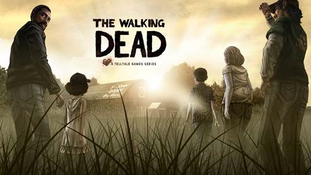 To hear the news of one of my favorite gaming studios closing was disheartening. As a gamer coming from the time when adventure games truly gained ground with Sierra On-Line releasing their series of ground-breaking titles and more, the Telltale concept of game design was truly enjoyable to see. They captured the essence of the early textbook adventure game concept called "choose-your-own-adventure" where readers made different choices as they read the book to progress through the story with different results. These books came around the time of Dungeons & Dragons (D & D) and also other text-based adventure games such as Hitchhiker's Guide to the Galaxy found on the Commodore 128 as well, with written narrative leading to choice-driven gameplay. In D & D, the games focused on choice that drove the role-playing game (RPG) forward for players with advancing their player and evolving throughout the game, whereas the text-based adventure focused on the narrative and solving puzzles to progress to the end. Adventure gaming became very popular when it came to the first graphical titles from Sierra and had a run for quite some time but ended up losing some traction when other new genres and consoles gained popularity. Starting on PC, the adventure genre did not move to the console until quite some time in the future as the interface for consoles was not as translatable to the way adventure games played. They originally started as text typing on the keyboard and then moved to the use of the mouse, both lacking from consoles. Telltale Games came to the rescue. With their start in 2004, ex-LucasArts members created the studio and focused on dedication to the Adventure Game genre and focused on "games using intellectual properties with small but dedicated fan bases" according to Wikipedia. This, along with the use of the Telltale Tool, established as a company focusing on "adventure games with a novel episodic release schedule over digital distribution". My first exposure to Telltale games was with Jurassic Park and Back to the Future but I did not start paying real attention until a friend recommend I play Wolf Among Us. This is the game that grabbed my attention with its unique art style and creative twist on fairytale lore. Everything about the game was uniquely different from what I had seen previously in the Adventure-gaming genre. Episodic gaming was novel and I found it to be quite enjoyable. In my younger days I had plenty of time to play lengthy game titles and long adventures, but eventually life became busier and time more scarce. Episodes with decent amount of content for a low-price point were attractive. I could enjoy about 4+ hours of gameplay on an initial playthrough, keeping track of my choices, and play through again to get another few hours of enjoyment. The end of each episode contained cliffhangers between episodes which kept me going, however, this is the one area where I found a complaint - many of the titles remained with cliffhangers and non-closure for many titles. It felt as if I was left hanging as a consumer while the company kept moving on to other titles. It made sense to have a number of titles, but maybe finishing some would have been good for the fans. This was seen with the request from fans for a sequel to Wolf Among Us that never got completed despite the large fan request. From a game designer perspective I found the episodic concept to be influential on my own design work on our adventure title, Wry Reveries, currently in production by our studio, Live in the Game, LLC. The game is not split into episodes but rather each title in the series of Reveries will contain different themes and a different protagonist from history. This is something that Telltale does by focusing on different stories among their Intellectual Properties (IPs), where they will focus on completely different stories from each other but they each contain similar design elements characteristic of Telltale's style and the tool they use. So our series will have similar elements spread among the series. Having Telltale pick up the torch and take Adventure games to another level was truly something to see and I always told my friends that if they release anything I drop what I am doing and go play it. I hope that the concepts and new innovations they introduced will not go away but that these will continue to evolve as we and others look to pick up now and continue the work. I am definitely saddened though that we will not see what happens to Bigby from Wolf Among Us or continue the tale of Batman from his series. There will also not be any closure on what happens to Marty McFly from Back to the Future with its major cliffhanger and lastly we will not continue Tales from the Borderlands (in the top three for me from their games and it was so good it pushed me to get into the original games). Adventure games will go on as we continue to develop them and push for their continued popularity as a genre that has existed for some time now and has so much more to go. Best wishes to my friend Tommy Leeds, a talented artist who graduated from the University of Advancing Technology and worked at Telltale Games. Also, best wishes from Live in the Game, LLC to all affected and the industry to get back on their feet and keep doing epic work! www.live-in-the-game.com https://en.wikipedia.org/wiki/Telltale_Games
0 Comments
Leave a Reply. |
Archives
October 2018
Categories |
Photo used under Creative Commons from goodrob13

 RSS Feed
RSS Feed
